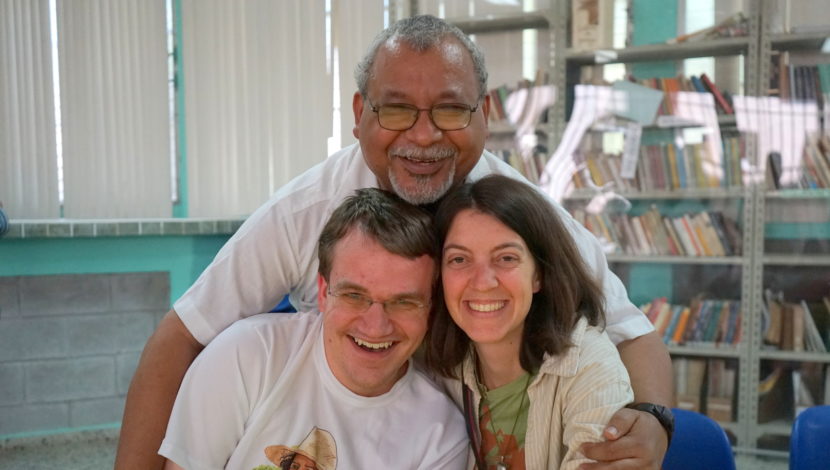The Unitarian Universalist Service Committee advances human rights through grassroots collaborations.
Honduran Human Rights Defenders and UUSC Partners at Risk

By on September 5, 2018
In recent days, deeply alarming reports have emerged from Honduras, where there has been an escalation of threats and intimidation tactics against the staff and leadership of Radio Progreso, UUSC’s partner, and eminent human rights defenders in Honduras. These threats follow public mobilizations to mark the August 30 Day of the Victims of Forced Disappearance, which commemorates people abducted by governments, militaries, and death squads in the region.
On August 31, the UN Office for the High Commissioner of Human Rights (OHCHR) in Honduras issued a statement expressing concern. Translated, it reads in part:
Recently the journalist and human rights defender Sandra Maribel Sánchez [a member of Radio Progreso’s staff] was subjected to threats against her life, in response to the discharge of her work as a journalist; meanwhile, the Director of Radio Progreso, Padre Ismael Moreno, has been the victim of a renewed smear campaign.
This statement follows on the Office’s earlier warnings on August 23 that Radio Progreso journalist Sandra Maribel Sánchez was targeted with threats for her reporting.
Threats of violence against human rights defenders in Honduras demand to be treated with the utmost seriousness. In recent years, two members of Radio Progreso’s staff have been murdered: Carlos Mejía in 2014 and Nery Jeremías Orellada in 2011. The OHCHR has previously described Honduras as one of the most dangerous countries in the world for human rights defenders after eight defenders were murdered in 2016.
Similarly, Human rights watchdog Reporters Without Borders ranks Honduras as among the most dangerous countries for journalists, placing it 141 out of 180 in its annual press freedom index.
When Radio Progreso hosted UUSC staff in Honduras earlier this year, we witnessed some of these threats up close. Rev Kathleen McTigue, who traveled to Honduras in January, was present with two Radio Progreso journalists when they received word that police had invaded their house and were beating up a family member. In May, UUSC’s partners in Honduras at Foro de Mujeres Por la Vida (Women’s Forum for Life) described how one of their colleagues had been kidnapped in 2010 with no word as to her whereabouts.
The U.S. Embassy in Honduras should immediately press the Honduran government to uphold the right to freedom of expression and safety, including for journalists, human rights defenders, and people engaged in social protest. In the long term, we reiterate the call to suspend U.S. security assistance to Honduras and otherwise reverse policies that fuel the militarization of Honduran society and threaten peace and democracy in the region.
Photos by Mark Coplan